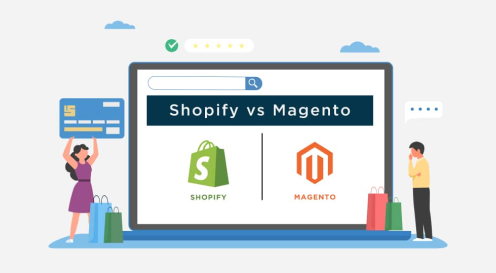What Matters for Local SEO: Key Factors to Boost Your Local Online Presence
14 Mar 2024 | 12 min read
In today’s digital era, having a robust online presence is crucial for businesses looking to thrive in their local markets. Local search engine optimization (SEO) ensures that companies appear prominently in local search results when potential customers actively seek their products or services. Businesses must understand the key factors influencing online visibility to succeed in local SEO. This blog post will explore the essential elements for local SEO, from optimizing Google My Business listings to managing online reviews and citations. By implementing these strategies, businesses can enhance their local online presence, attract more local customers, and ultimately drive growth in their target market. Join us as we delve into local SEO and discover the key factors that can significantly impact your business’s success in the digital realm.

Claim Your Google My Business Listing
Google heavily relies on GMB listings to generate local search results. When someone searches for businesses or services in their local area, Google’s algorithm considers the information in GMB listings to display relevant results. By claiming and optimizing your GMB listing, you increase your chances of appearing in local search results, driving more local traffic to your business.
Having a verified GMB listing lends credibility to your business. It shows that you are a legitimate and trustworthy establishment. Users are likelier to choose businesses with verified listings, as it instills confidence and reduces the risk of encountering fraudulent or unreliable businesses.
Steps to claim and optimize your Google My Business listing
Claiming and optimizing your GMB listing is a straightforward process. Follow these steps to get started:
- Create a GMB Account: Visit the Google My Business website (https://www.google.com/business/) and click the “Manage Now” button. Sign in with your Google account or create a new one.
- Claim Your Business:
- Search for your business name in the provided field.
- If your business is listed, claim it by following the verification process.
- If not listed, click the “Add your business to Google” option and provide the required information.
- Verify Your Business: Google provides various verification options, such as phone verification, email verification, or postcard verification. Choose the most convenient method for your business and follow the instructions provided.
- Complete Your Profile: Once verified, complete all the relevant information about your business, including your name, address, phone number (NAP), website URL, business hours, and categories that best describe your business. Ensure the information is accurate, consistent, and matches your other online profiles.

Tips to enhance your listing for better local visibility:
Optimizing your GMB listing is crucial for better local visibility. Here are some tips to enhance your listing:
- Use Relevant Keywords: Incorporate local keywords into your business description, services, and attributes. This helps Google understand your business’s relevance to specific local searches.
- Add High-Quality Photos: Include high-resolution images that showcase your products, services, and location. Visual content can attract potential customers and make your listing more engaging.
- Encourage Customer Reviews: Encourage satisfied customers to leave reviews on your GMB listing. Respond to reviews promptly, positive and negative, as it demonstrates engagement and improves your business’s reputation.
- Regularly Update Your Listing: Keep your GMB listing up to date with any changes in business hours, services, or contact information. This ensures accuracy and provides a better user experience.
- Utilize Additional Features: Explore additional features GMB provides, such as posts, messaging, and Q&A. These features can enhance customer engagement and provide valuable information to potential customers.
Claiming and optimizing your Google My Business listing can significantly improve visibility, credibility, and local SEO rankings. Take
Importance of local citations in establishing business credibility
Local citations are online mentions of a business’s NAP information on other websites, directories, or platforms. They are vital in establishing business credibility and improving local SEO rankings. Here are some reasons why local citations are important:
Consistency and Accuracy:
Consistency and accuracy of local citations are vital in establishing business credibility. When a business is listed consistently across various online directories, review sites, and local search platforms, it signals to potential customers and search engines that the business information is reliable and trustworthy. Consistent citations include accurate and up-to-date details such as the business name, address, phone number (NAP), website URL, and other relevant information. Inconsistencies in these citations can confuse customers and harm a business’s reputation. Therefore, maintaining consistency and accuracy in local citations is crucial for establishing credibility and ensuring a positive user experience.
Trust and Reputation:
Local citations also contribute to building trust and reputation for a business. When a business is consistently mentioned in reputable local directories and platforms, it reinforces the credibility of the business. Potential customers tend to trust businesses that have a robust online presence and are listed in prominent directories within their local community. Positive customer reviews, ratings, and testimonials associated with these citations further enhance the trustworthiness and reputation of the business. Conversely, consistent or accurate citations can create customer doubts and undermine the business’s credibility. Businesses can build trust and enhance their reputation by managing and maintaining a strong presence in local citations, increasing customer confidence and loyalty.
Enhanced Local Search Rankings:
Local citations enhance a business’s visibility in local search results. Search engines like Google consider local citations as a crucial factor when determining the relevance and authority of a business in a specific location. Consistent and accurate citations across multiple platforms indicate to search engines that the business is legitimate and relevant to the local area. This, in turn, can improve the business’s local search rankings, making it more likely to appear prominently in search results when users search for products or services within its target location. Higher visibility in local search results increases the chances of attracting local customers and driving more organic traffic to the business. Therefore, investing time and effort into managing local citations can significantly impact a business’s online visibility, reach, and overall success in the local market.
Online Reviews and Reputation Management
With the widespread use of the internet and social media platforms, customers now have the power to share their experiences and opinions about products, services, and businesses with a global audience. Online reviews and reputation management involve actively monitoring and responding to customer feedback and cultivating a positive online reputation. This process is crucial because it directly impacts a business’s credibility, customer trust, and overall success. By effectively managing online reviews and reputation, businesses can build a strong brand image, attract new customers, retain existing ones, and stay ahead of their competition in the digital landscape.

Encouraging customers to leave reviews on Google and other review platforms
To generate reviews and boost your online reputation, here are some strategies to encourage customers to leave reviews on Google and other review platforms:
- Ask for Reviews: Train your staff to ask satisfied customers to leave a review proactively. You can do this in person, through email, or by including a review request in follow-up communications.
- Make it Easy: Provide clear instructions on how to leave a review on Google or other review platforms. Include direct links or QR codes that direct customers to your review page to streamline the process.
- Incentivize Reviews: Offer small incentives, such as discounts or loyalty points, to customers who leave a review. However, ensure you comply with the review platform’s guidelines and policies regarding incentivized reviews.
- Promote Positive Reviews: Share positive reviews on your website, social media profiles, and other marketing channels. Highlighting positive feedback can encourage others to leave reviews as well.
- Leverage Email Marketing: Use email marketing to reach your customer base and request reviews. Send personalized emails asking for feedback and provide links to review platforms for their convenience.
Responding to reviews, both positive and negative, to build a positive reputation
Whether positive or negative, responding to reviews is crucial for building a positive reputation. Here’s how to handle responses effectively:
- Timely Responses: Aim to respond to reviews promptly. Thank customers for positive reviews and address any concerns or issues raised in negative reviews.
- Personalize Your Responses: Tailor your responses to each review, addressing the customer by name and acknowledging their specific feedback. Personalized responses show that you value their input.
- Express Gratitude: Show appreciation for positive reviews and tell customers their feedback is valuable. This encourages ongoing engagement and loyalty.
- Address Negative Reviews Professionally: When responding to negative reviews, remain calm and professional. Apologize for any negative experiences and offer a solution or a way to address their concerns offline.
- Take the Conversation Offline: If appropriate, provide contact information for the customer to discuss their concerns further offline. This demonstrates your willingness to resolve issues privately.
- Monitor and Learn: Regularly monitor reviews to stay informed about customer sentiments and identify areas for improvement. Use constructive feedback to make necessary changes to your products, services, or customer experience.
By actively managing and responding to online reviews, businesses can build a positive reputation, enhance their local SEO rankings, and attract more customers who trust their offerings’ quality.
Local Link Building
Local link-building is a crucial component of any successful online marketing strategy. It involves acquiring backlinks from authoritative local sources to improve the visibility and credibility of your website within your community. Establishing a strong network of local links enhances your online presence and attracts targeted local traffic to your site. This is particularly important for businesses targeting a specific geographic area, as it allows them to connect with their local audience and build trust within their community. With local link building, you can effectively position your website as a reliable resource and gain an edge over competitors in the local search results.
Strategies to acquire local backlinks from authoritative sources
To acquire local backlinks from authoritative sources, consider implementing the following strategies:
- Create High-Quality, Localized Content: Develop compelling and informative content tailored to your local audience. This can include local guides, resource articles, or case studies highlighting your local market expertise. Quality content increases the likelihood of other websites linking to your business.
- Local Business Directories and Listings: Submit your business to reputable local directories and listings. These platforms often allow you to include a link back to your website. As discussed in a previous section, ensure that your NAP information is consistent across these directories.
- Local Sponsorships and Events: Sponsor local events, charities, or organizations. In return, they may provide backlinks to your business on their websites. This not only helps with link-building but also strengthens your community presence.
- Collaborate with Local Influencers: Identify influential individuals or bloggers in your local area and explore opportunities for collaboration. They can mention or feature your business on their websites, providing valuable backlinks and exposure.

Leveraging local partnerships and sponsorships for link-building opportunities:
Local partnerships and sponsorships offer excellent opportunities for link-building. Here’s how you can leverage them effectively:
- Identify Relevant Local Partnerships: Look for businesses or organizations in your local area that align with your target audience or industry. Seek mutually beneficial partnerships that can lead to link-building opportunities.
- Offer Value and Support: Approach potential partners with a clear value proposition. Demonstrate how partnering with your business can benefit them and the local community. This could include providing exclusive discounts, collaborating on joint marketing campaigns, or sharing resources.
- Request Backlinks: As part of the partnership agreement, politely request a backlink from their website to yours. Highlight the value their audience will receive from accessing your products or services.
- Attend Local Events and Sponsorships: Participate in local events or sponsor community initiatives. This builds goodwill and increases the chances of obtaining backlinks from event websites or related media coverage.
- Engage in Local PR Efforts: Share newsworthy stories or achievements about your business with local media outlets. Press releases or interviews that mention your business can result in valuable backlinks from news websites.
Remember, focusing on quality over quantity is key to successful link-building. Seek backlinks from authoritative local sources relevant to your industry or target audience. By incorporating these strategies, you can strengthen your local link profile and improve your business’s visibility and rankings in local search results.
Local Content Creation
Local content creation is vital in establishing a strong online presence for businesses targeting specific geographic areas. It involves developing location-specific landing pages and blog posts that provide valuable information about the local area to attract and engage local users. This strategy is important because it allows businesses to personally connect with their target audience, showcasing their understanding of the local community and its unique characteristics. By creating content that resonates with local users, businesses can build trust, establish themselves as authorities in their niche, and drive more traffic and conversions. Additionally, local content creation helps businesses improve their search engine visibility by targeting location-specific keywords and catering to the needs of local users. In a highly competitive digital landscape, having compelling and informative local content is essential for businesses to differentiate themselves and thrive in their local markets.
Developing location-specific landing pages and blog posts
Location-specific landing pages and blog posts are effective ways to target local users. Here’s how to develop them:
- Create Location-Specific Landing Pages: Develop dedicated landing pages for each location you serve. Customize the content to highlight the unique aspects of each location, such as local offerings, addresses, contact information, and testimonials from customers in that area.
- Optimize for Local Keywords: Incorporate localized keywords into your landing page content and meta tags. It helps search engines understand the location relevance of your page and improves its visibility in local search results.
- Provide Localized Offers and Promotions: Include location-specific offers, discounts, or promotions on your landing pages. This encourages local users to take action and engage with your business.
- Write Location-Focused Blog Posts: Create blog posts that cover topics of interest to the local audience. This could include local events, news, guides, or industry insights from a local perspective. Engage with the local community through comments and social media to foster interactions.
Providing valuable information about the local area to attract local users
Providing valuable information about the local area is a great way to attract local users and establish yourself as a trusted resource. Here’s how to do it effectively:
- Local Guides and Directories: Create comprehensive guides or directories highlighting local attractions, businesses, events, or services. This positions your website as a go-to resource for local information.
- Highlight Local Businesses: Showcase other local businesses or partners on your website or blog. This supports the local community and encourages those businesses to link to your website, fostering a network of local backlinks.
- Share Local Tips and Insights: Share helpful tips, advice, or insider knowledge about the local area through blog posts, videos, or social media content. This positions your business as an authority and resource in the local community.
- Collaborate with Local Influencers: Partner with local influencers or content creators to generate content that highlights the local area. This can include interviews, guest posts, or social media collaborations promoting your business and the local area.
You can attract and engage the local audience by creating localized content, developing location-specific landing pages and blog posts, and providing valuable information about the local area. This helps establish your business as a trusted resource and increases your visibility and relevance in local search results.
Conclusion
In conclusion, local SEO is crucial for businesses looking to enhance their online presence within specific geographic areas. Businesses can improve their local search rankings by focusing on key factors such as optimizing Google My Business profiles, generating positive reviews, and ensuring consistent NAP (Name, Address, Phone Number) information. Chetaru, a leading provider of local SEO services, offers expertise in implementing these strategies and more. With their comprehensive approach, including targeted keyword research, on-page optimization, and local citation building, Chetaru can help businesses achieve higher visibility and attract more local customers, ultimately driving growth and success in their respective markets.


